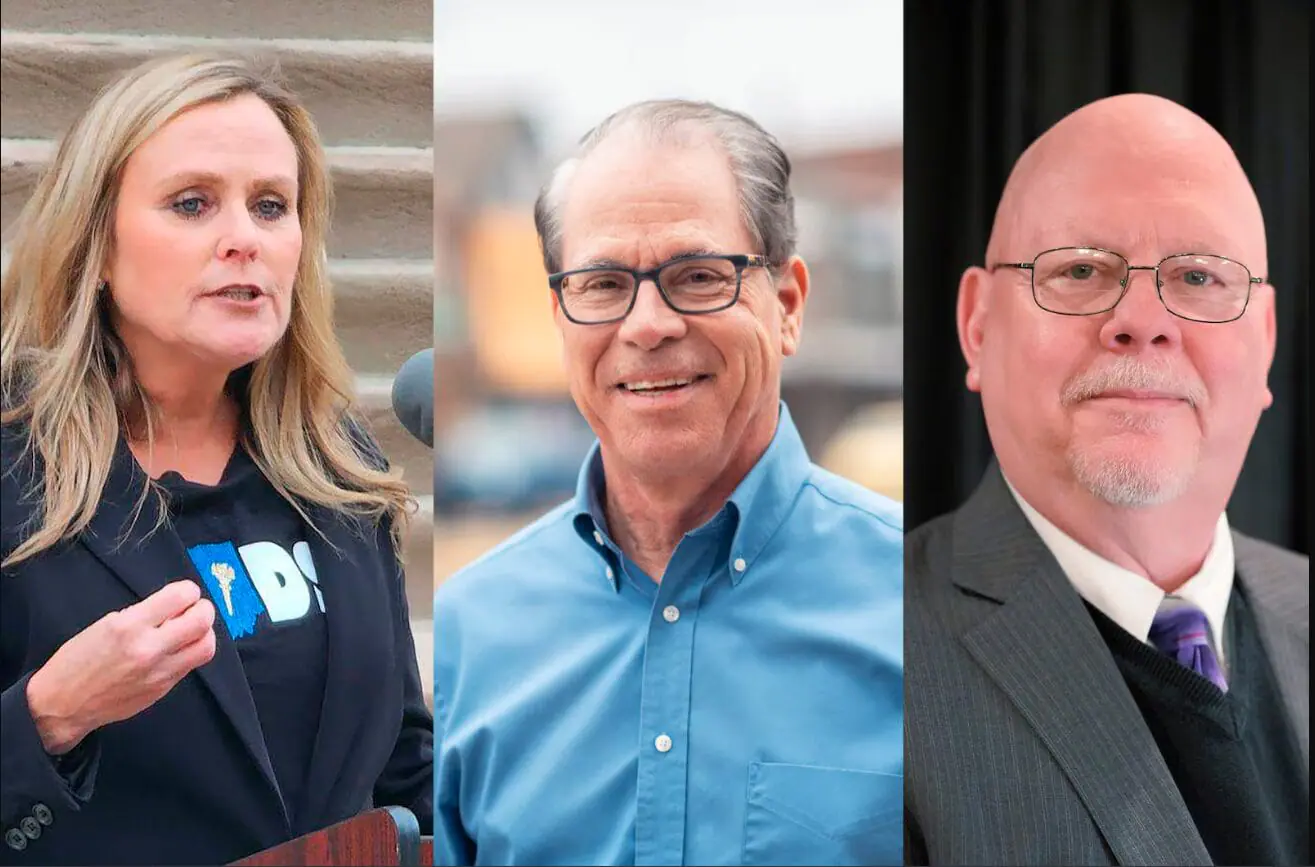Voter guide: Indiana governor candidates discuss absenteeism, literacy, and teacher pay
This story was originally published by Chalkbeat. Sign up for their newsletters at ckbe.at/newsletters
Three candidates are running for Indiana governor and a chance to shape education policy in the state — Republican U.S. Sen. Mike Braun, Democrat Jennifer McCormick, and Libertarian Donald Rainwater.
Their views differ significantly, particularly on questions of education funding that are likely to take center stage when the next legislative session starts in January.
While Braun has indicated support for universal access to private school vouchers, Rainwater, a software engineer, supports universal ESAs, which would give families state funding for the classes and activities of their choosing, not just private school tuition.
Meanwhile, McCormick, the former superintendent of public instruction, has pointed out that choice funding has siphoned money from public schools, which enroll 90% of Hoosier students.
We asked the three candidates for Indiana governor to answer seven questions about their plans for education, including how they would tackle absenteeism and improve teacher retention and recruitment.
Rainwater and McCormick answered our questions, while Braun’s campaign provided a link to his education platform in response. Where relevant, Chalkbeat included points from his website that answered our questions.
Early voting begins on Oct. 8. Early voting sites can be found here.
Candidates
- School attendance in Indiana is improving, but remains below pre-pandemic levels. Lawmakers have passed and proposed a variety of solutions to absenteeism, including meetings with families to identify underlying issues, community service and a loss of privileges for older absentee students, as well as potential legal action for parents. What specific approaches would you support to improve school attendance?Participation in Indiana’s three voucher tracks has grown as restrictions have been loosened, but most Indiana students still attend public schools. Meanwhile, some state leaders would like to merge the three tracks into a single universal ESA program. How would you balance these interests in the state budget? What is your vision for the future of the school choice landscape?Recently, an Indianapolis charter school became a private school in order to accept Choice Scholarship funding and face less public scrutiny. What kind of academic and financial accountability do you expect from private schools? Should private schools be subject to new state laws on school attendance and literacy curriculum?Early learning access varies widely by county in Indiana. What programs or initiatives would you support to expand access to quality childcare and preschool programs? Would you support a universal preschool program in Indiana? Why or why not?Indiana has passed a series of laws mandating curriculum and training backed by the science of reading. What else would you like to see addressed in these laws? What has been most successful in improving student literacy?Do you support the pathway model outlined by Indiana’s new proposed high school diplomas? Why or why not? How does Indiana ensure that each student has full access to advanced curriculum, career training, and postsecondary opportunities?What incentives or initiatives would you prioritize to improve teacher retention and recruitment? Do you think increasing teacher pay is a solution? If so, how would you do that?
Aleksandra Appleton covers Indiana education policy and writes about K-12 schools across the state. Contact her at aappleton@chalkbeat.org.
Related election coverage
- Watch replay of ‘All Indiana Politics Special: The Governor’s Debate’
- Indiana Governor candidates split on abortion law debate
- Indiana Governor candidates debate school vouchers, have differing views on education funding and parental choice
- Education, property taxes dominate WISH-TV governor’s debate

 Donald Rainwater
Donald Rainwater Jennifer McCormick
Jennifer McCormick Mike Braun
Mike Braun